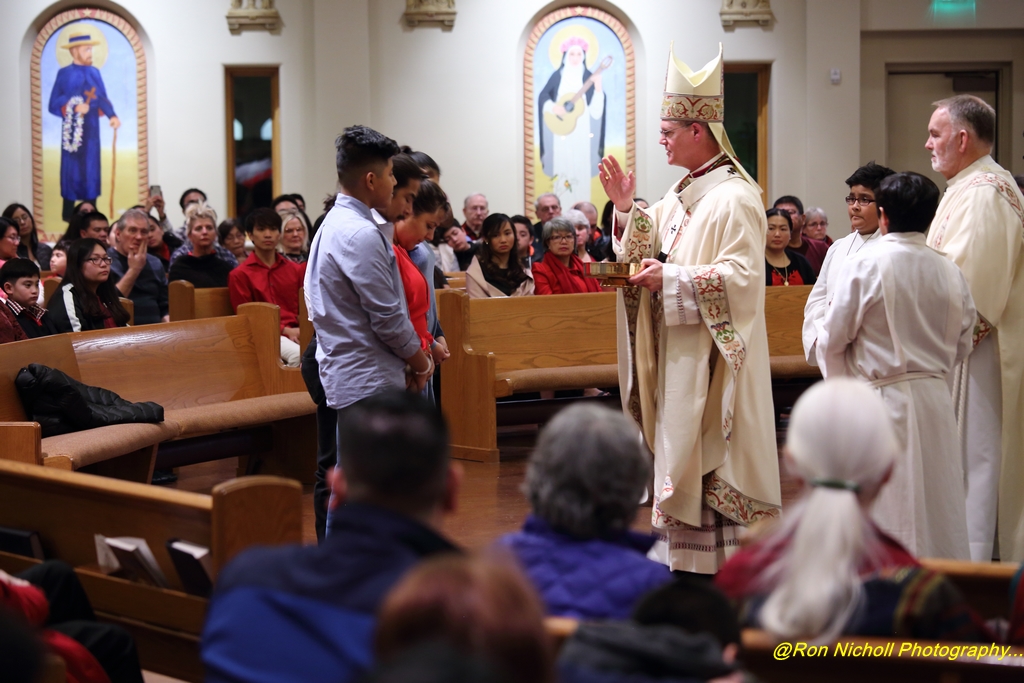Several years ago, while I was still a pastor of a parish, I felt that some parishioners were beginning to treat their religion as one more item to be consumed. Their consumer practices and attitudes were corrupting their understanding of what it means to be a member of the Body of Christ, the Church.
Particularly concerning where parishioners who were leaving not only our parish, but were leaving the Catholic faith. On the occasion that I had the opportunity to speak with people who were making this transition, I heard things like: “I’m not being fed here.” or “I’m not getting anything out of the Mass.”
Such comments tend to betray a skewed perspective on why we are members of the Church and why we attend Mass in the first place.
One take away is we need to be aware of (as best we can) the influence the surrounding culture has on us, particularly regarding our faith and values. How often is the culture influencing our values, rather than our witness of faith changing the world around us? That, after all, is the missionary impulse of the Church, to bear witness to Christ and carry his Good News into the world.
On a broader, more historical level, we can see the gift of faith that was built up over time here in Alaska by so many devoted bishops, priests, religious and lay faithful. Thankfully, there are still many generous people today who are highly invested in the life of the Church. Yet, this challenging question must be asked: “Are we simply living off – consuming – what was left to us?” or “Are we making our own investment and contribution to further build up the Body of Christ?” How are we passing on the faith to the next generations?
One title often used for the Church is The Mystical Body of Christ. Each of us are members of the Church. As members of the Church, we participate in the life of the Risen Christ, and through the grace of the Church, Jesus is at work in and through each of us. Whether we know it or not, we do indeed receive the most precious gift of all through the Church, the gift of salvation.
 Regarding the Sunday (or daily) celebration of the Eucharist, of course, we want to ‘get something out of it,’ but that is not the primary reason for our presence. The Eucharist is first and foremost about worshiping God, it is about what we bring to the celebration, namely, hearts full of gratitude for all that God has done for us through his Son, Jesus Christ. Eucharist is about adoration and praise, giving thanks, and desiring through our worship to make a generous gift to God in return for all his goodness to us.
Regarding the Sunday (or daily) celebration of the Eucharist, of course, we want to ‘get something out of it,’ but that is not the primary reason for our presence. The Eucharist is first and foremost about worshiping God, it is about what we bring to the celebration, namely, hearts full of gratitude for all that God has done for us through his Son, Jesus Christ. Eucharist is about adoration and praise, giving thanks, and desiring through our worship to make a generous gift to God in return for all his goodness to us.
During Mass, in the prayer before the Eucharistic Prayer, in the Preface we are invited to lift our hearts to the Lord and give him thanks. This prayer also addresses our purpose and intention: “It is truly right and just, our duty and our salvation, always and everywhere to give you thanks, Lord, holy Father, almighty and eternal God, through Jesus Christ our Lord.”
In the Eucharistic Prayer, the elements of bread and wine are consecrated “by which, by means of the words and actions of Christ, that Sacrifice is effected which Christ himself instituted during the Last Supper, when he offered his Body and Blood under the species of bread and wine, gave them to the Apostles to eat and drink, and leaving with the latter the command to perpetuate this same mystery.” (General Instruction of the Roman Missal, #79 d)
In each celebration of the Eucharist the Church offers the sacrifice of Christ to the Father. At the same time, it is the intention of the Church that we, her members, learn to offer our own lives in loving service to God and to one another. The doxology which concludes the Eucharistic Prayer expresses that through Christ, in union with the Holy Spirit, all glory and honor belong to God the Father.
Yes, every parish, and every priest has a responsibility to make sure that each celebration of the Eucharist is a worthy celebration. And each of us will do well to recognize the great gift which we receive in every Eucharist. It is truly right and just that we give thanks and praise to God.
We do receive much from God through the Church. The precious gifts of life and salvation come to us from God, through Jesus Christ. It seems one of our greatest concerns is regularly and to prayerfully ask: “How can I make a return to the Lord, for all the good He has done for me?” (Psalm 116: 12)
9